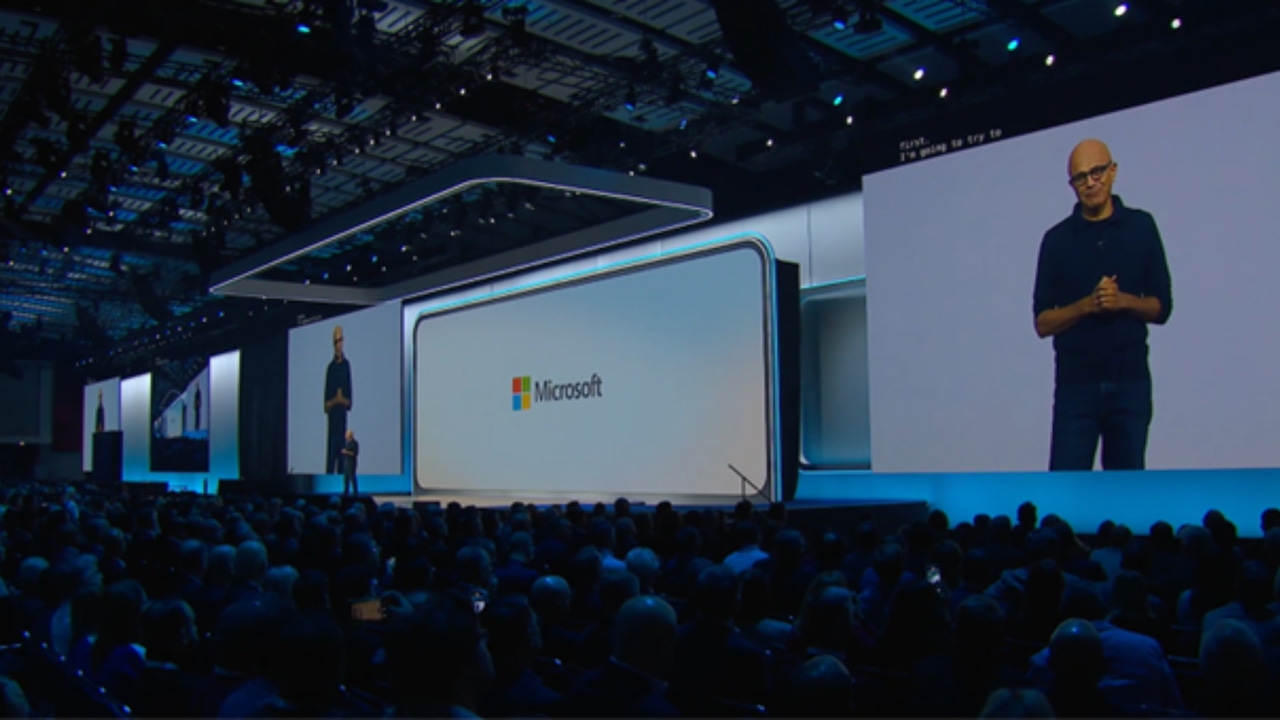Microsoft Ignite 2024: Azure, AI Take Center Stage with Major Platform UpdatesMicrosoft Ignite 2024: Azure, AI Take Center Stage with Major Platform Updates
Microsoft is growing its cloud portfolio with a series of innovations it announced at Ignite that are aimed to boost AI and cloud-native deployments.

Microsoft introduced significant technical updates to its cloud and AI platforms at its annual Ignite conference that took place this week, focusing on infrastructure scalability, AI development tools, and enterprise deployment capabilities.
New research presented at the conference shows organizations are rapidly expanding their AI implementations, with enterprise adoption increasing from 55% in 2023 to 75% in 2024. The data suggests that successful implementations are delivering measurable returns, though they require substantial infrastructure and development resources. To address these requirements, Microsoft announced technical updates across three core areas: cloud infrastructure optimization, AI development tooling, and data platform modernization.
Key technical announcements at the Microsoft Ignite conference include:
Azure AI Foundry — Development platform integrating Azure AI models with deployment and monitoring tools
Azure ND GB200 V6 VMs — AI-optimized virtual machines using NVIDIA's Blackwell architecture
Azure Container Apps — GPU-enabled serverless computing platform
Azure Local — Hybrid infrastructure platform for distributed computing
"Our mission is to empower every person and every organization on the planet to achieve more," Microsoft CEO Satya Nadella said during his opening keynote at Ignite.
AI Development Platform Evolution
The Azure AI Foundry announced at the event provides a new development architecture for enterprise AI applications. The platform includes a software development kit (SDK) for customization and testing, along with deployment and management tools. It features 25 preconfigured application templates and integrates with existing development tools, reducing implementation complexity while maintaining deployment flexibility.

The platform supports multiple AI model types and includes new APIs for image processing, text analysis, and custom model deployment. These APIs can be accessed through standard development tools, enabling integration with existing application architectures.
Microsoft also significantly expanded Copilot Studio's capabilities with new autonomous agent features. Copilot Studio is a tool for building, testing, and deploying AI. The platform now supports event-driven automation, allowing agents to respond to system events without human intervention. Developers can create custom agents using a no-code interface while maintaining enterprise-grade security and compliance controls.
The overall goal for Microsoft is to significantly improve productivity and efficiency for users.
"What lean [production method] did for manufacturing, AI will do for knowledge work," Nadella said. "It's all about increasing value and reducing waste."
Microsoft's Next-Generation Infrastructure
Nadella also unveiled significant infrastructure improvements designed to support the growing demands of AI computing.
Microsoft has expanded its global footprint with new data center investments in 15 countries across six continents, bringing its total to more than 60 data center regions. Notably, the company is pioneering sustainable construction methods.
"We just announced two data centers in Northern Virginia built completely with low-carbon, cross-laminated timber to reduce embodied carbon footprint," Nadella revealed.
Nadella claimed that the innovative construction approach will reduce the carbon footprint of Microsoft's data centers by 35% compared with any conventional steel construction.
Azure Local Brings Microsoft Cloud to the Edge
Microsoft also announced a significant new edge computing innovation with its Azure Local service.
Nadella explained that the new offering extends Azure services across hybrid, multicloud and edge locations with one central control plane. He noted that it brings core Azure capabilities directly to where data is generated and processed.
Azure Local expands on capabilities Microsoft first announced in 2019 with Azure Arc. Nadella said "Azure Local brings Azure Arc all the way to all of the edge," enabling organizations to run mission-critical workloads and AI applications in distributed environments.
Azure Cloud Innovations Accelerate Workloads
In a keynote, Microsoft Azure CTO Mark Russinovich showcased a wide array of cloud innovations at Ignite 2024, spanning hardware acceleration, cloud-native computing, and confidential computing technologies.
Leading the hardware innovations is Azure Boost, which represents Microsoft's modern disaggregated cloud architecture.
"Azure Boost is a network accelerated offload card," Russinovich explained. "It features two 200 Gigabit Ethernet ports and an FPGA for high-speed processing. Azure Linux runs on ARM cores on the Azure Boost card."
According to Russinovich, this architecture has achieved impressive performance metrics, including 750,000 IOPS on 16 sockets and local storage performance of 6.6 million IOPS on a commodity virtual machine with throughput reaching 36 gigabytes per second.
In cloud-native computing, Microsoft announced AKS Virtual Node v2, providing full Kubernetes compatibility.
"If you're familiar with Azure Kubernetes Service and virtual node that we introduced about five years ago, it had some limitations," Russinovich said. "You couldn't get basically fully native Kubernetes capabilities off of those virtual nodes. With Virtual Node v2, it looks exactly like a standard node in a Kubernetes cluster."
In addition, Microsoft introduced significant enhancements to Azure Container Instances (ACI). The new ACI standby pools demonstrated remarkable scalability by launching 10,000 containers in 90 seconds. The company also unveiled ACI end groups, bringing scale set functionality to containerized workloads.
Azure's incubation team is working on a series of research efforts. One such project is Project Radius, which, according to Russinovich, aims to simplify cloud-native application deployment. Radius allows developers to define cloud-portable applications that can then be deployed to different environments by a platform engineering team, using recipes to bind the application to the target infrastructure and implement security, cost management, and other policies.
Another incubation project, Drasi, addresses complex change detection architectures through continuous queries using the Cipher language. Drasi is a system that allows defining continuous queries to detect state changes and trigger desired actions, simplifying complex change detection workflows.
"This is just an exciting time to be in the cloud," Russinovich said.
About the Author
You May Also Like








.jpg?width=700&auto=webp&quality=80&disable=upscale)
